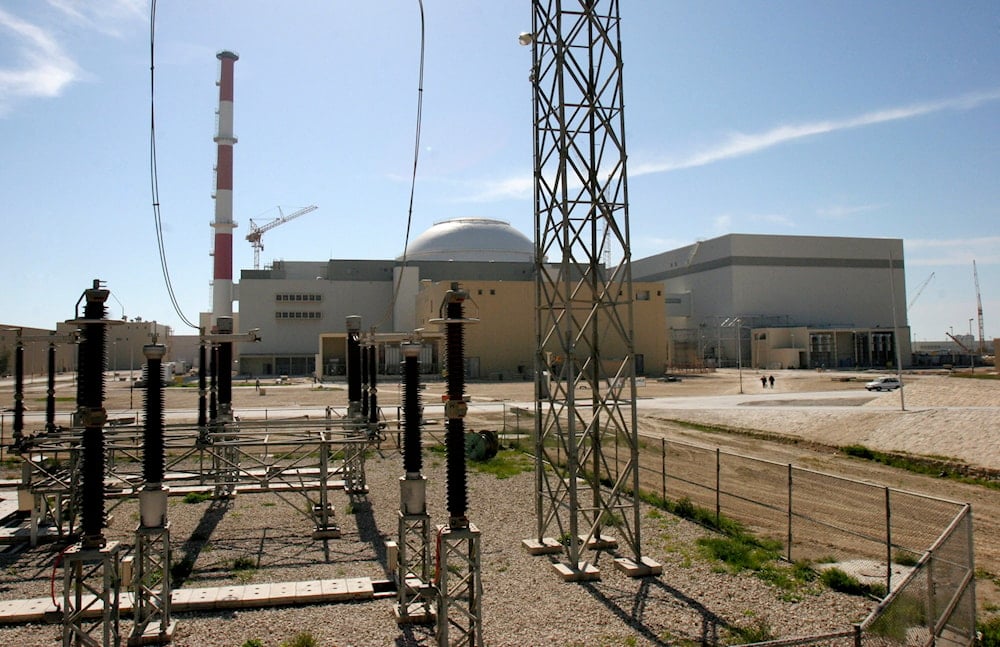Rosatom to evacuate Bushehr NPP at slightest threat: Rosatom Chief
Rosatom CEO Alexey Likhachev affirmed the Russian nuclear agency's readiness to evacuate Iran's Bushehr nuclear plant if any threat arises.
-

This Sunday, Feb. 26, 2006 file photo shows a reactor building of Iran's Bushehr nuclear power plant (AP)
The Russian state nuclear corporation Rosatom will implement all necessary evacuation measures in the event of even the slightest threat to Iran's Bushehr nuclear power plant, as confirmed by CEO Alexey Likhachev on Friday.
"We will take all evacuation measures at the slightest threat, we are ready for this," Likhachev said on the sidelines of SPIEF, addressing the situation surrounding the Bushehr nuclear power plant and emphasizing Rosatom's preparedness to act decisively if any danger arises.
Likhachev stated that the global community had heard Putin's message, positioning nuclear scientists as a gesture of goodwill and solidarity with Iran during these challenging times, adding that the president's words emphasized their role as a supportive and cooperative force for the country.
"But today, it seems to me, the entire world community has heard the president's words that nuclear scientists are such a hand of friendship, a hand of support for Iran in these difficult days," the Russian nuclear chief announced.
An attack that could spell disaster
The Bushehr Nuclear Power Plant, built in 1994, is Iran's first nuclear power plant, built under an agreement between Tehran and Moscow, which had Russia incorporate some of its technologies in the facility. The nuclear facility sits on the Gulf Coast.
James Acton, co-director of the Nuclear Policy Program at the Carnegie Endowment for International Peace, emphasized that an attack on Bushehr could lead to an absolute radiological catastrophe.
Sheikh Mohammed bin Abdulrahman bin Jassim Al Thani, when asked by Tucker Carlson about the potential consequences of an attack on the Bushehr Nuclear Power Plant for the Gulf Sea, echoed these concerns, warning that such an incident would result in an "environmental catastrophe."
For Gulf states, the potential contamination of Gulf waters resulting from a strike on Bushehr would exacerbate the impact, threatening a vital source of desalinated drinking water.
In the UAE, over 80% of drinking water comes from desalination, while Bahrain relies entirely on it, reserving groundwater for emergencies, and Qatar depends 100% on desalinated water, whereas Saudi Arabia, with larger groundwater reserves, sources about half its water supply from desalination as of 2023.
Since "Israel" launched its illegitimate assault on Iran's nuclear program, it attacked the Natanz, Fordow, and Khondab nuclear facilities, sparking fears that it could target Bushehr next.

 3 Min Read
3 Min Read








